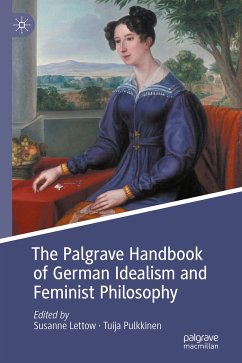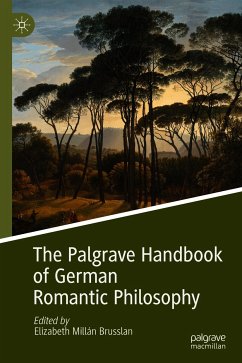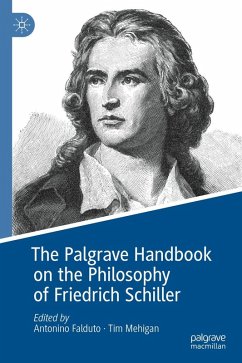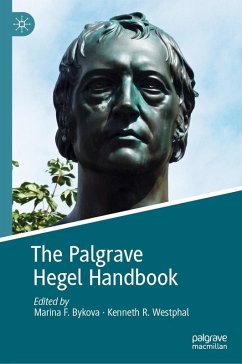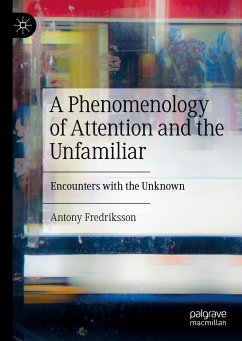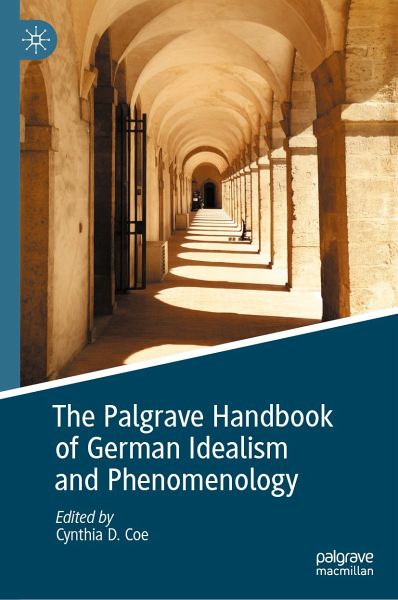
The Palgrave Handbook of German Idealism and Phenomenology (eBook, PDF)
Versandkostenfrei!
Sofort per Download lieferbar
167,95 €
inkl. MwSt.
Weitere Ausgaben:

PAYBACK Punkte
84 °P sammeln!
This volume examines the complex dialogue between German Idealism and phenomenology, two of the most important movements in Western philosophy. Twenty-four newly authored chapters by an international group of well-known scholars examine the shared concerns of these two movements; explore how phenomenologists engage with, challenge, and critique central concepts in German Idealism; and argue for the continuing significance of these ideas in contemporary philosophy and other disciplines. Chapters cover not only the work of major figures such as Husserl, Heidegger, and Merleau-Ponty, but a wide r...
This volume examines the complex dialogue between German Idealism and phenomenology, two of the most important movements in Western philosophy. Twenty-four newly authored chapters by an international group of well-known scholars examine the shared concerns of these two movements; explore how phenomenologists engage with, challenge, and critique central concepts in German Idealism; and argue for the continuing significance of these ideas in contemporary philosophy and other disciplines. Chapters cover not only the work of major figures such as Husserl, Heidegger, and Merleau-Ponty, but a wide range of philosophers who build on the phenomenological tradition, including Fanon, Gadamer, and Levinas. These essays highlight key themes of the nature of subjectivity, the role of intersubjectivity, the implications for ethics and aesthetics, the impact of time and history, and our capacities for knowledge and understanding.
Key features:
· Critically engages two of the major philosophical movements of the last 250 years
· Draws on the insights of those movements to address contemporary issues in ethics, theory of knowledge, and political philosophy
· Expands the range of idealist and phenomenological themes by considering them in the context of gender, postcolonial theory, and environmental concerns, as well as their global reach
· Includes new contributions from prominent, international scholars in these fields
This Handbook is essential reading for all scholars and advanced students of phenomenology and German Idealism. With chapters on Beauvoir, Sartre, Scheler, Schutz, Stein, and Ricoeur, The Palgrave Handbook of German Idealism and Phenomenology is also ideal for scholars researching these important figures in the history of philosophy.
Key features:
· Critically engages two of the major philosophical movements of the last 250 years
· Draws on the insights of those movements to address contemporary issues in ethics, theory of knowledge, and political philosophy
· Expands the range of idealist and phenomenological themes by considering them in the context of gender, postcolonial theory, and environmental concerns, as well as their global reach
· Includes new contributions from prominent, international scholars in these fields
This Handbook is essential reading for all scholars and advanced students of phenomenology and German Idealism. With chapters on Beauvoir, Sartre, Scheler, Schutz, Stein, and Ricoeur, The Palgrave Handbook of German Idealism and Phenomenology is also ideal for scholars researching these important figures in the history of philosophy.
Dieser Download kann aus rechtlichen Gründen nur mit Rechnungsadresse in A, B, BG, CY, CZ, D, DK, EW, E, FIN, F, GR, HR, H, IRL, I, LT, L, LR, M, NL, PL, P, R, S, SLO, SK ausgeliefert werden.



